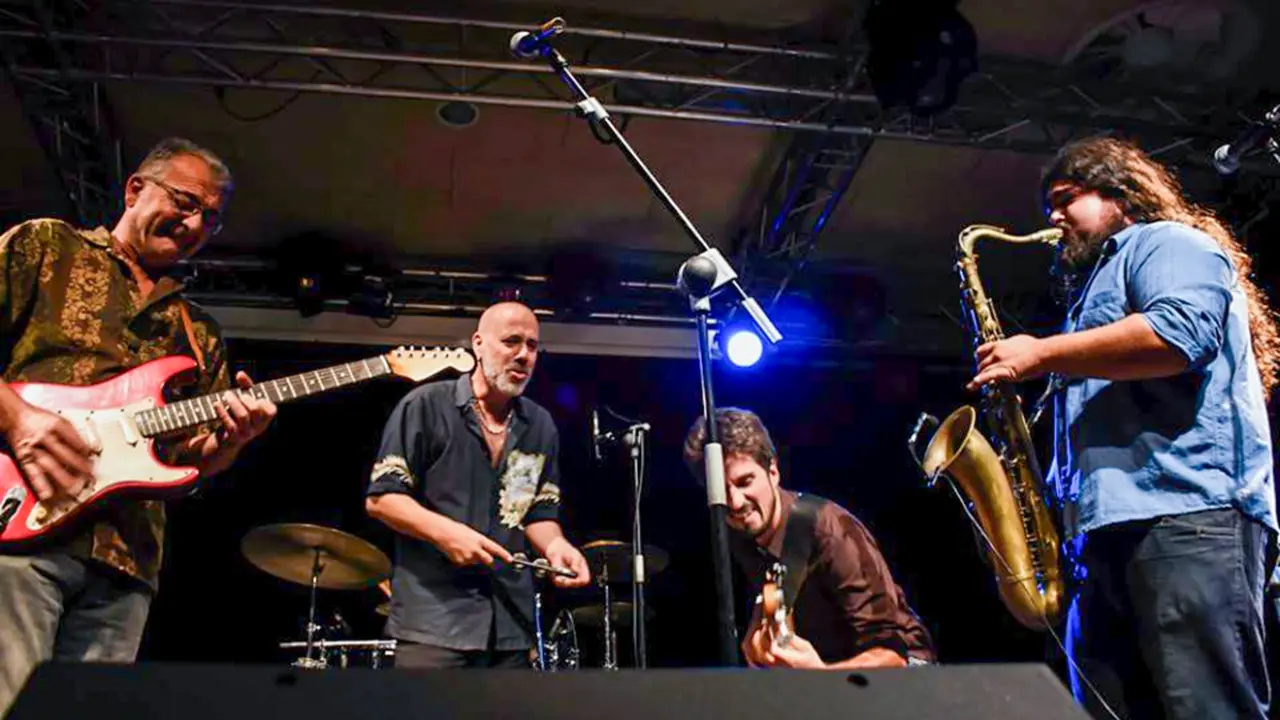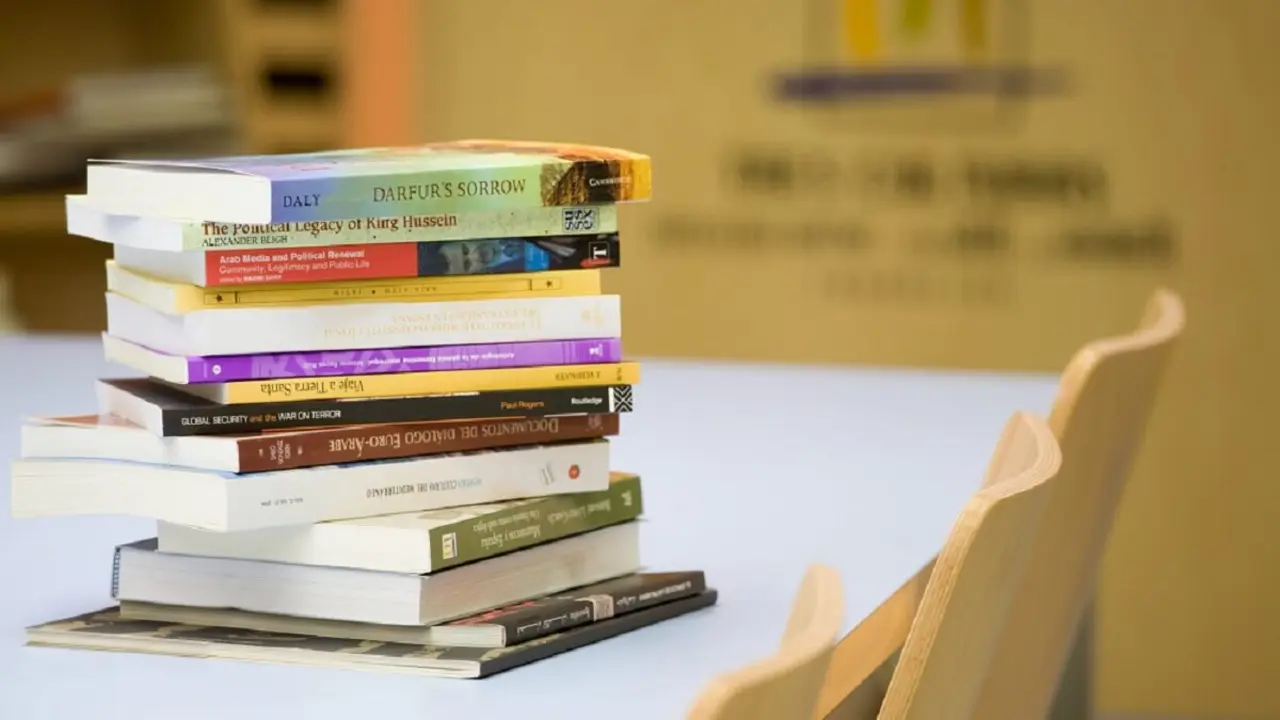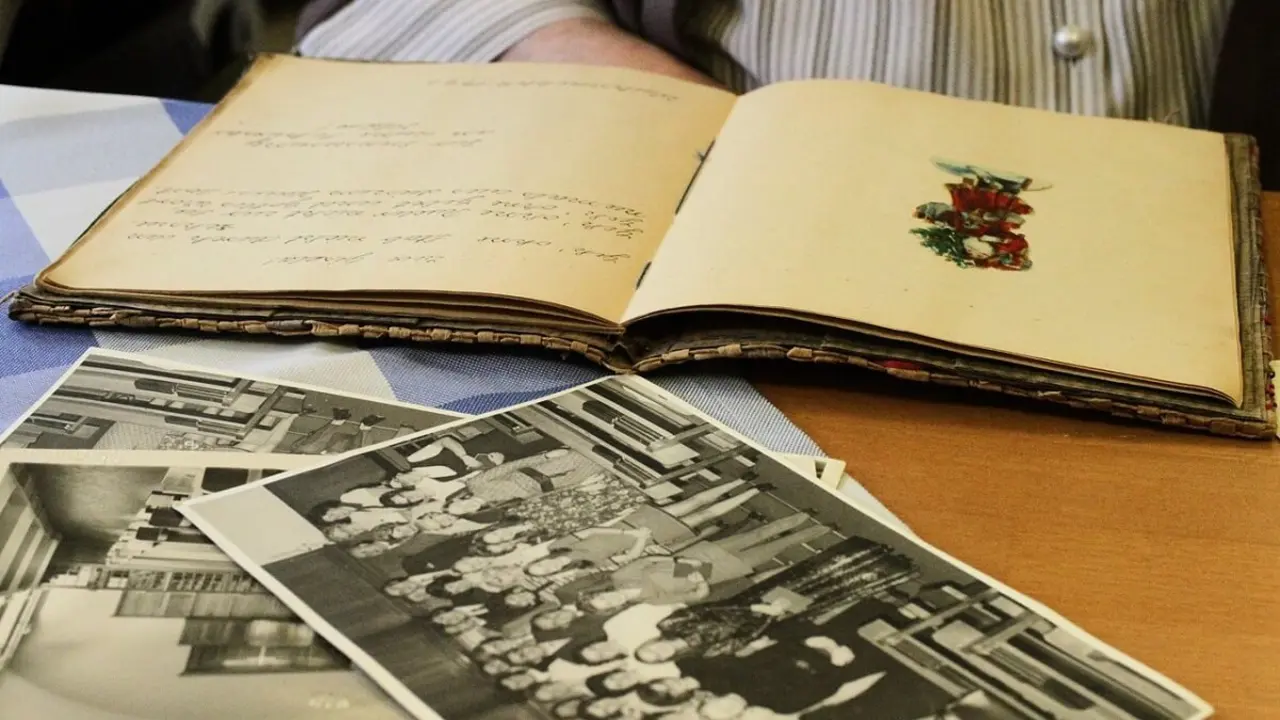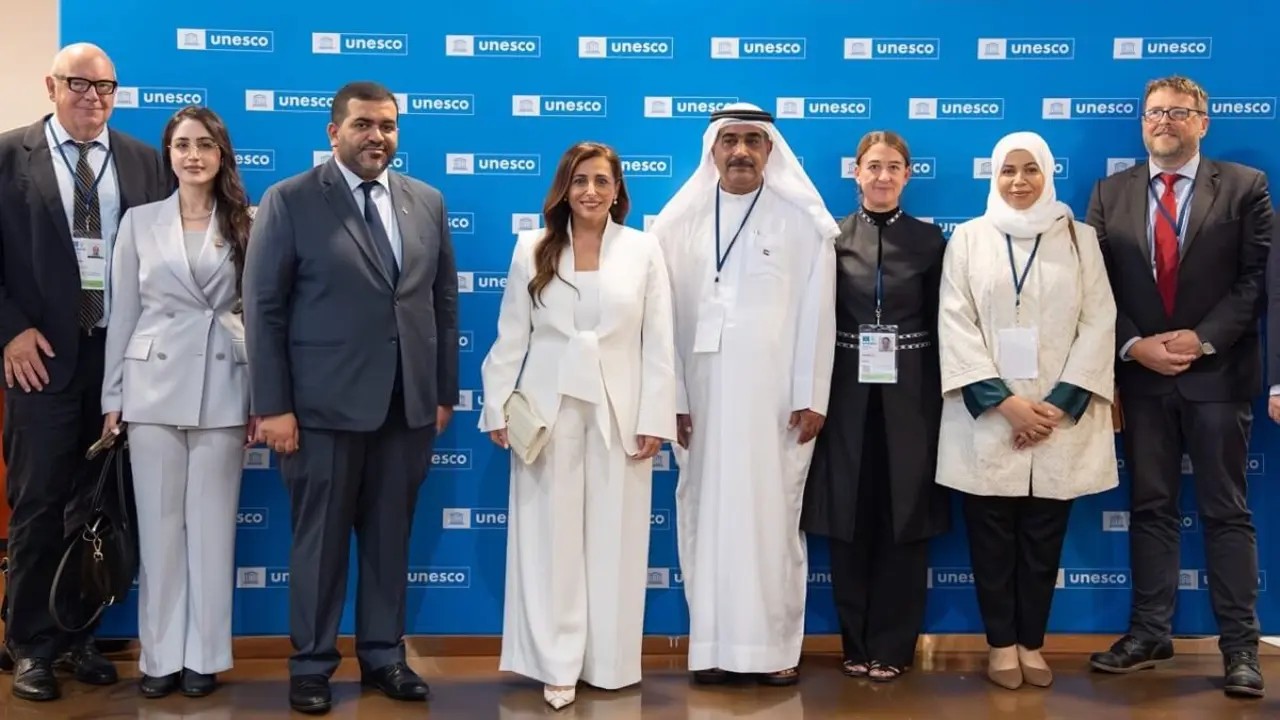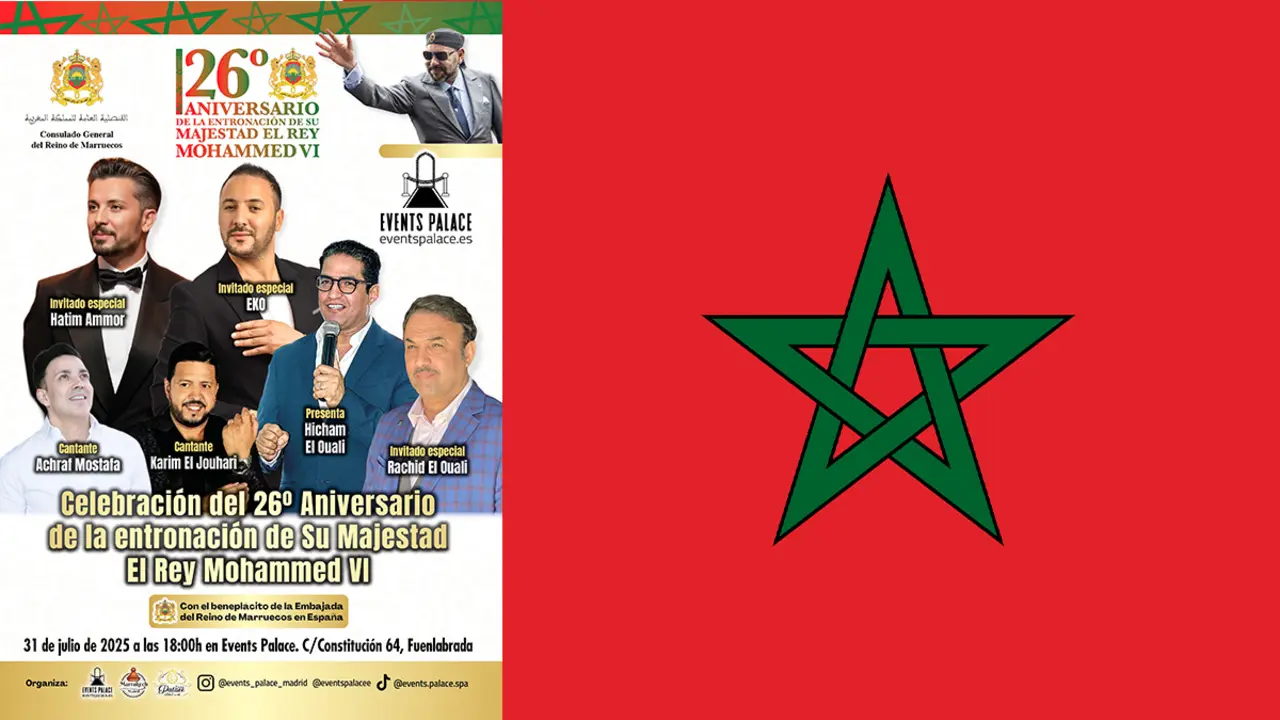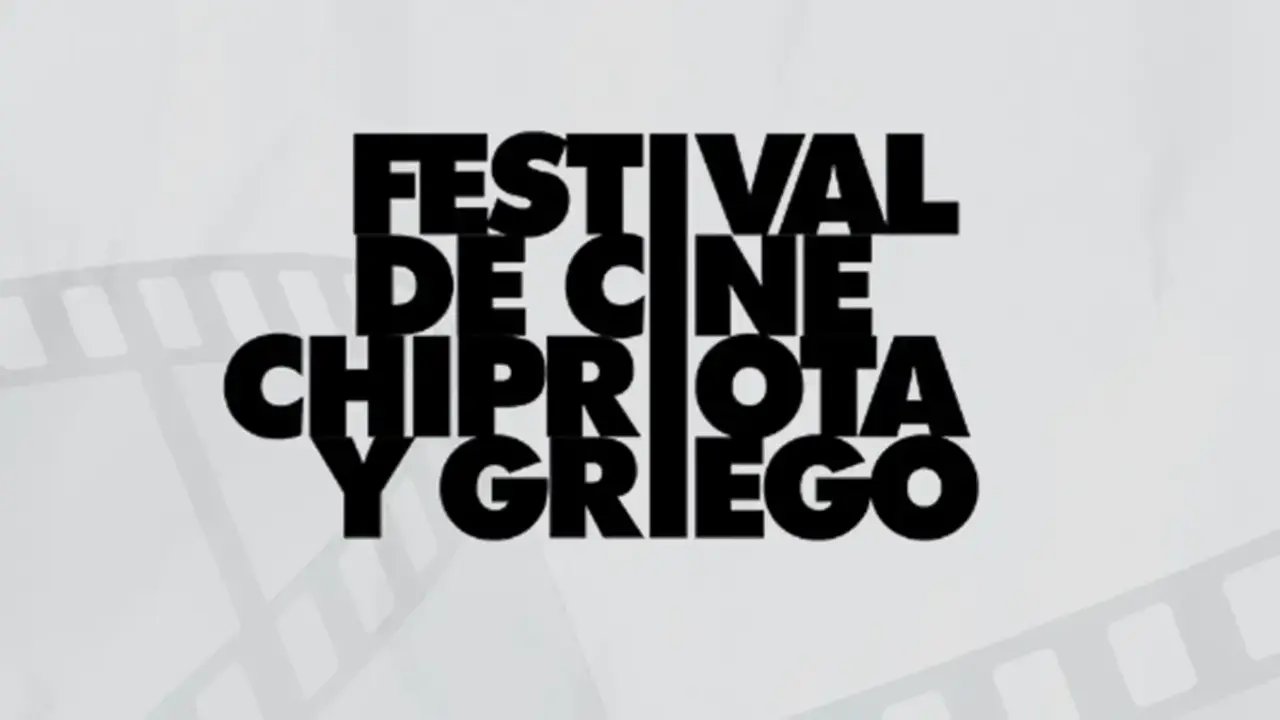A tribute to daily heroes of the war against Daesh in Iraq
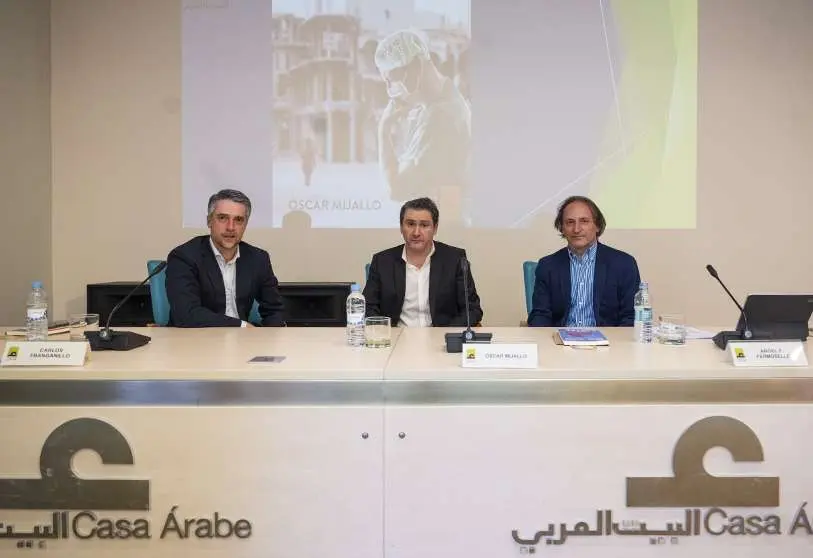
El médico de Mosul', the latest novel by Óscar Mijallo, TVE's international journalist in the Middle East, has already seen the light of day. Mijallo has been a special envoy to the battle of Mosul and to the conflicts in Syria, Libya, Ukraine, Afghanistan and Gaza, among others. With this book, the author tries to pay tribute to and reflect what was experienced in Mosul during those four years of horror under the rule of Daesh, as well as the misery and greatness of some of its protagonists.
The book takes place in the midst of the battle of Mosul, where Dr Ayash risks his life against ISIS to try to save his patients. When he disappears after the Islamists retreat, a French-Spanish aid worker does everything she can to find him. This novel intertwines the stories of three Yazidi sisters who have become sex slaves, a fierce Daesh fighter, the father of a girl who is willing to do anything to save his daughter, and little Osama, a child with autism who is a friend of Dr. Ayash.
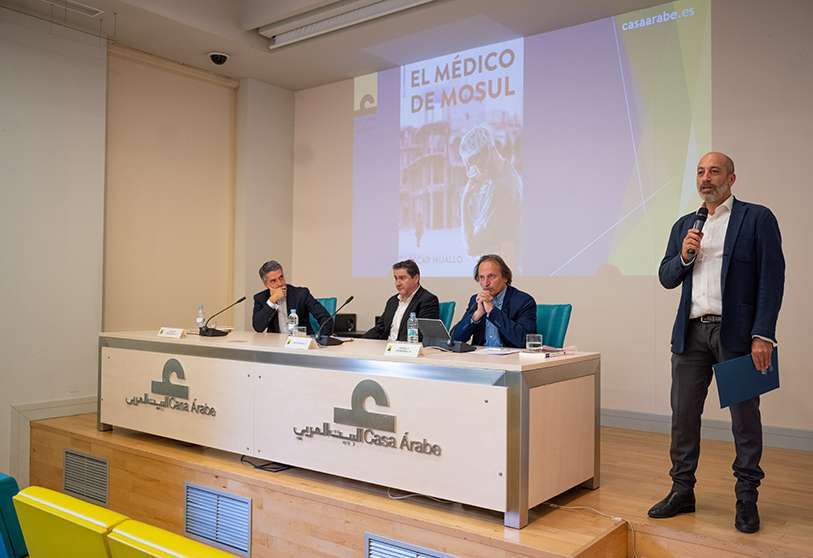
Óscar Mijallo presented his book at Casa Árabe, accompanied by Carlos Franganillo, journalist and TVE presenter, and Ángel F. Fermoselle, editor of Kailas. The event was introduced by Karim Hauser, Casa Árabe's International Relations Coordinator.
Mijallo wants this to be his contribution so that his readers know what happened during those four years of terror, to raise the population's awareness of this type of conflict so that it does not happen again. "It tries to be a tribute and a reflection of what I found in Mosul", especially to the aid workers and people like the doctor in the novel, who put their lives at risk to help others. The novel is the fruit of the experiences of these anonymous heroes, real people and real stories.
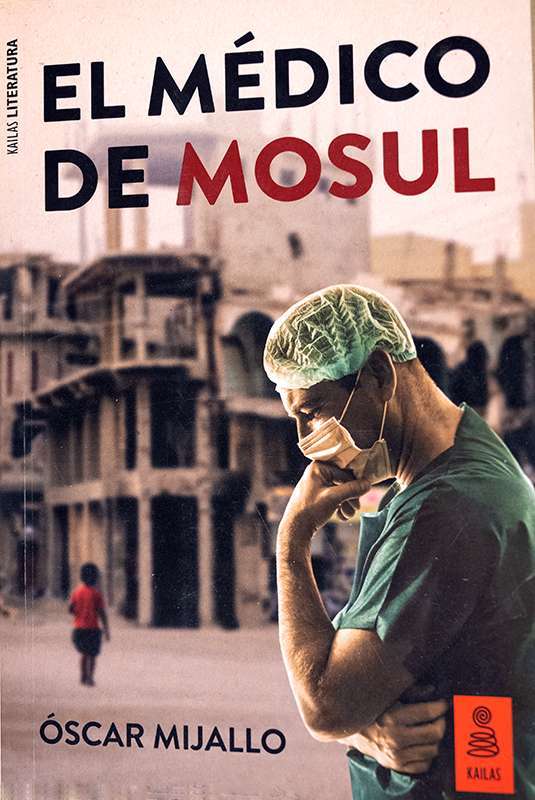 Franganillo added that, in a war, one sees the true nature of human beings, highlighting their best and worst attributes. There are people who have great goodness and who, despite the horror, stand firm because they know that their work is important for their community. The author reveals that the figure of Ayash is inspired by the Palestinian neurosurgeon Osama Aklouk, trained in Spain, who decides to work in Gaza despite the conflicts that afflict the area.
Franganillo added that, in a war, one sees the true nature of human beings, highlighting their best and worst attributes. There are people who have great goodness and who, despite the horror, stand firm because they know that their work is important for their community. The author reveals that the figure of Ayash is inspired by the Palestinian neurosurgeon Osama Aklouk, trained in Spain, who decides to work in Gaza despite the conflicts that afflict the area.
The book gives a global idea of the conflict through small personal stories that show how different aspects of the war are intertwined. Franganillo said that "Oscar has the ability to show what could have been" with an audiovisual rhythm that grabs you and denotes his extensive knowledge of the region, its people and its culture.
Fermoselle added that "only a person who has lived there is able to write a novel like this" and encouraged people to read the book as it conveys the reality of the conflict in a very personal way, showing the best and the worst of human beings.
The presentation ended with questions to the author, where it was discussed whether nowadays stories expire more quickly and whether there is no longer a place for long-term coverage, such as the one that took place in Mosul. The journalist argued that perhaps this is because the audience is anaesthetised and does not demand such news after a few days.
Fermoselle asked whether combatants know or remember why they fight when wars are prolonged over time. Mijallo responded that, in conflicts such as those in Afghanistan, Colombia or Syria, belonging to an armed group becomes a way of life for its militants, they know no other job than that of war. What do you do if the war ends and they tell you to lay down your arms? Many of them have been fighting since they were very young and do not know how to do anything else, which is why they cling to the conflict.
The event closed with a final question in the background: "Is there any point to war? "I wish I could say no", Mijallo replied, but unfortunately "war still makes sense for many people".

